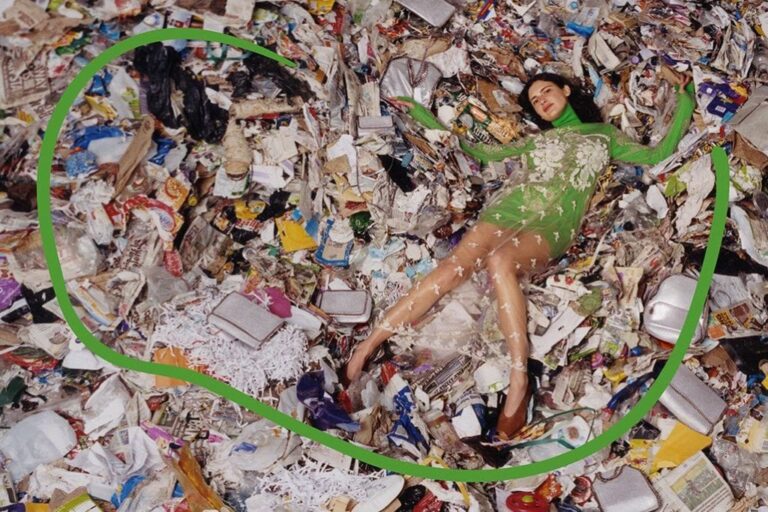In addition to the European Parliament’s adoption of the AI law and its support for the anti-greenwashing directive, there was another notable legislative development in the European Union this week. On Wednesday, the European Parliament voted in favor of amendments to the Waste Framework Directive that seek to impose further responsibility on clothing and footwear manufacturers. Specifically, the EU has set out to establish an Extended Producer Responsibility (EPR) scheme to ensure that textile, clothing and footwear manufacturers cover the costs of collecting, transporting and sorting products for reuse or recycling, and support research and development to improve recycling processes.
Background: First introduced in 2008 and last updated in 2018, the Waste Framework Directive is the legal framework for waste management in the EU. In July 2023, the European Commission proposed an amendment to the Directive to introduce a mandatory and harmonised EPR scheme for textile products in all EU Member States. The proposed regulation will not only “facilitate the sustainable management of textile waste across the EU” but also “serve as an incentive for EU Member States to manage their textile waste sustainably”, the Commission stated. [manufacturers] By developing better products from the get-go, we aim to reduce waste and improve the circularity of textiles.”
Fast forward to March 13th, the amendments to the Waste Framework Directive were approved by MEPs with 514 votes in favour of the amendments, 20 against, and 91 abstentions. Parliament maintained that according to the proposed amendments, EU member states must establish an extended producer responsibility regime for textiles within 18 months of the Directive coming into force (compared to the 30 months proposed by the European Commission). It also confirmed that the new rules “will cover products such as clothing and accessories, blankets, bedding, curtains, hats, footwear, mattresses, carpets, as well as products containing textile-related materials such as leather, synthetic leather, rubber and plastics.” Rapporteur Anna Zalewska maintained that the new rules, if amended, would even include “sales via online platforms.”
In their memo on the EU’s proposed EPR regime for the textile industry, lawyers from Norton Rose Fulbright highlight a number of key elements:
> Scope: The obligations extending to “textile producers” apply to natural and legal persons (e.g. textile manufacturers, importers and distributors) who offer textile products on the market for the first time in the EU. In addition, workers in the textile and footwear manufacturing/distribution industries (listed in Annex IVc of the EPR textile proposal) are also included in the scope of the regime, as are distributors of textile products whose activities “involve direct remote communication with end users”, for example through online platforms.
> National register of textile producers: The EPR textile proposal imposes an obligation on Member States to introduce a so-called “textile producer register” with the aim of monitoring producer compliance with the legislation as it comes into force. Textile producers will have to apply for registration in each Member State where they place their textiles on the market for the first time. Producers will not be able to place their textile products on the market until the registration has been confirmed in each Member State.
> Producer Responsibility Organisations: Producers are obliged to appoint a so-called “Producer Responsibility Organisation”, a legal entity that organises the fulfilment of the Extended Producer Responsibility obligations on their behalf. Producers are obliged to make a financial contribution to the PRO.
> Costs: The costs per producer are calculated by “eco-adjustments” that determine the costs to be paid based on the environmental performance of textile products. These costs are calculated based on the weight of the product in question and adjusted based on eco-design requirements.
Next steps: The proposed amendments to the Waste Framework Directive will now be submitted to the Council of the European Union for approval or amendment and will be considered by the new Parliament after the European elections in June 2024.
While the amendment has been touted as a move to “prioritize responsible consumption and production practices to mitigate the devastating impact of fast fashion on the planet,” as MEP Marthe Gallet recently put it, the directive has faced backlash. For example, Emily McIntosh, senior textile policy officer at the European Environment Agency, said the vote to “assess the possibility of setting a 2032 textile waste reduction target by 2025” was “a major improvement.” [but] “It’s still too vague and puts the issue off for too long,” she said, adding that MEPs “recognize the impacts of shipping used textiles to third countries, but stop short of setting out a real framework for global accountability to ensure that financial support reaches countries that are bearing the brunt of Europe’s textile overconsumption.”


